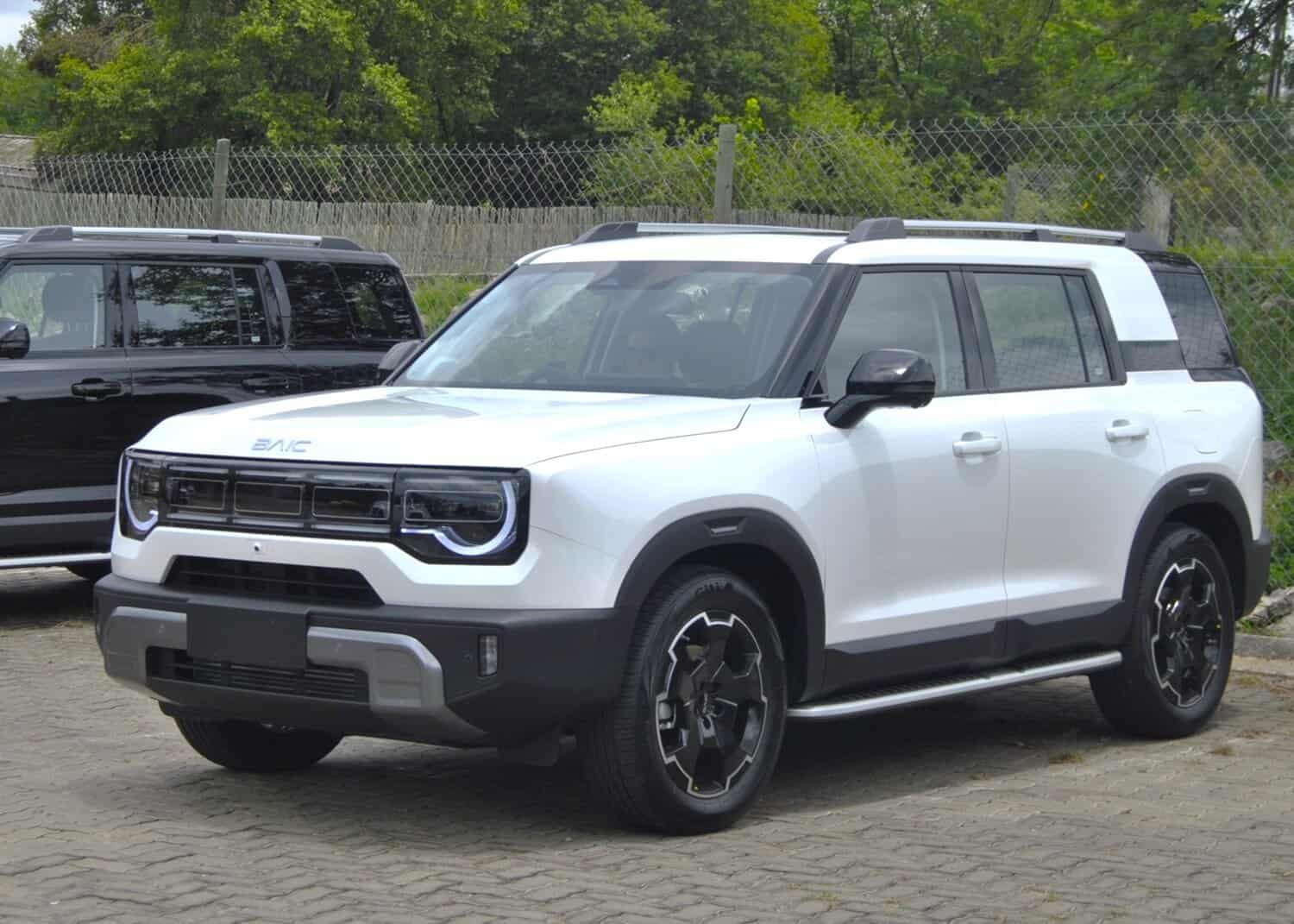
Chinese automaker Beijing Automotive Industry Corporation, better known by the abbreviation BAIC, has not had the easiest of rides since launching its South African operations seven years.
Not as clear-cut
Whereas fellow People’s Republic marques, Chery and Great Wall Motors (GWM) have flourished, BAIC has comparatively struggled since the high profile opening of its controversial assembly plant in the Coega Industrial Zone (IDZ) outside Gqeberha in 2018.
A facility which last year only produced 282 vehicles as told during a media tour, the automaker has, however, insisted that the 41 768 m2 factory is anything but a white elephant.
ALSO READ: BAIC drops price hint of soon to be made in South Africa B30
Apart from complete knockdown kit (CKD) production of the popular Beijing X55, subsidiary Foton produced the first pre-production Tunland G7 bakkie at the plant last month as part of expansions plans involving both the local and other African markets.
Revealed at the Kyalami Festival of Motoring in August, the B30 will become the third model assembled at the plant located outside the town formerly known as Port Elizabeth, but only from next year and also in CKD format.
The name
The first BAIC-badged model poised for local manufacturing – the X55 being sold under the upscale Beijing brand – the B30’s launch in Johannesburg on Monday (11 November) involved not only the petrol variant, but also the self-charging hybrid aimed at Chery’s Tiggo Cross HEV and to some extent, the locally made Toyota Corolla Cross.
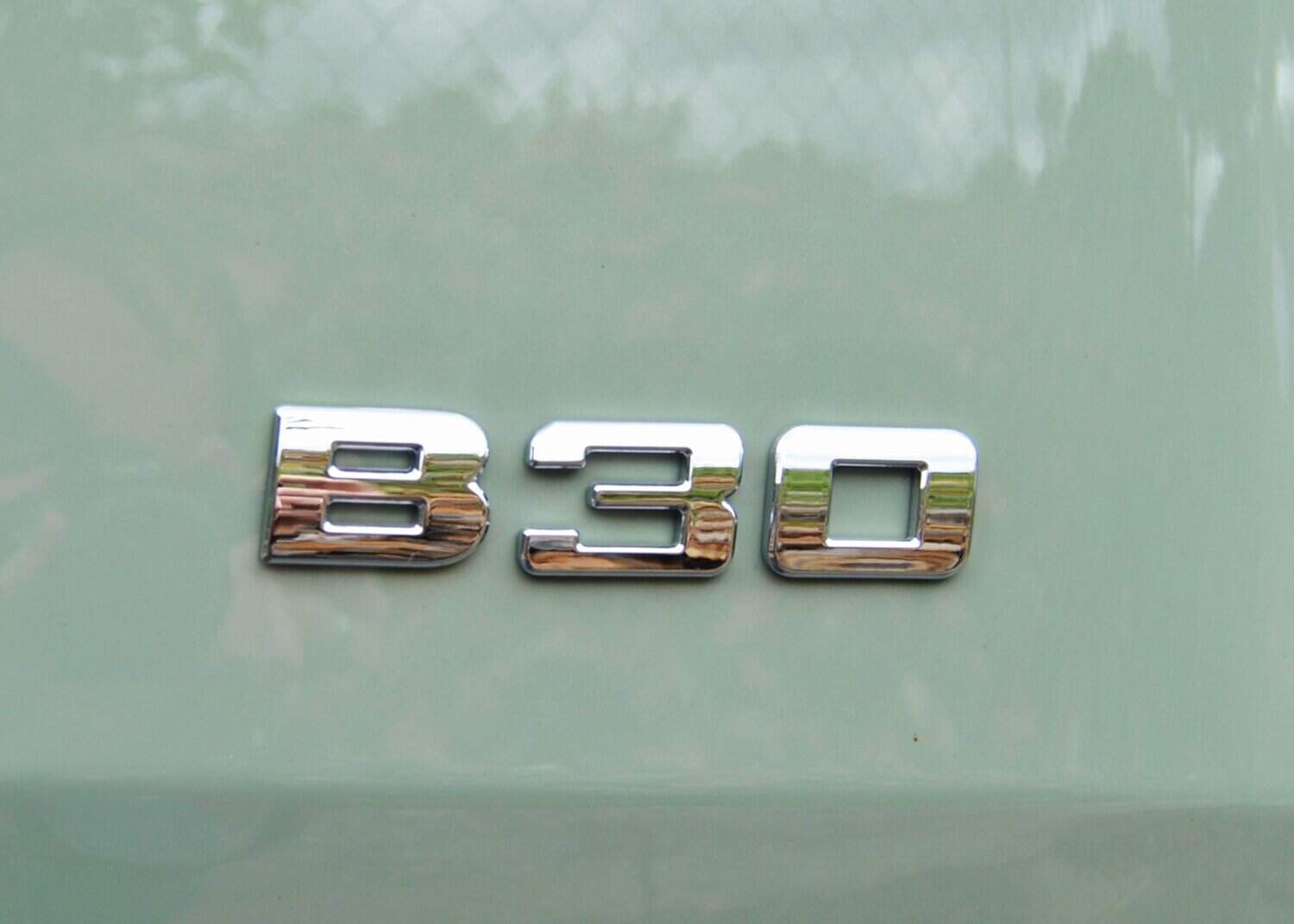
Initially imported from the Zhenjiang plant before the start of local production, the B30, as with its Jeep Wrangler-styled B40 Plus sibling, falls under the BJ or Beijing Jeep banner in China where it is called the BJ30.
Renamed to avoid possible unsavoury remarks, the B30 incorporates more than a few styling touches from other models, namely the Defender 110, Ford Bronco and Jeep Grand Wagoneer.
Dimensions
Officially into its second generation that debuted in China last year, the B30 rides on a unibody platform, but is touted as a light duty off-roader or adventure vehicle as per its claimed 215 mm of ground clearance.
Doing without any locking differentials or a low range transfer case, the B30 has an approach angle of 30-degrees, breakover angle of 21-degrees and departure of 30-degrees to go with its 450 mm wading depth.
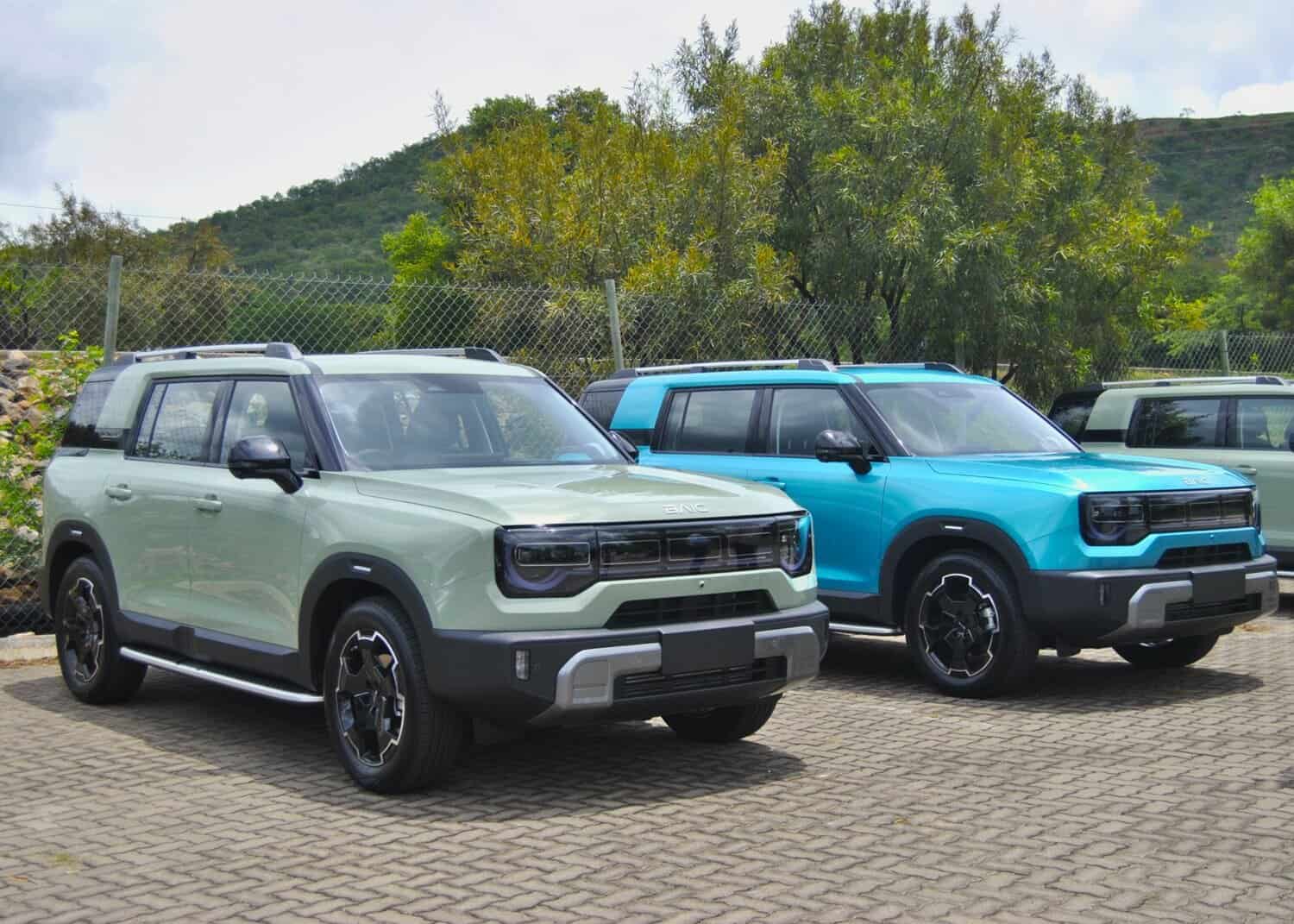
Dimensionally, the B30 measures 4 730 mm long, 1 910 mm wide and 1 790 mm tall. Along with a 2 820 mm long wheelbase, total packing space maxes out with 1 496-litres with the rear seats folded down.
The most inquisitive part is the interior’s ability to be configured into a sleeping area with the front seats also folded.
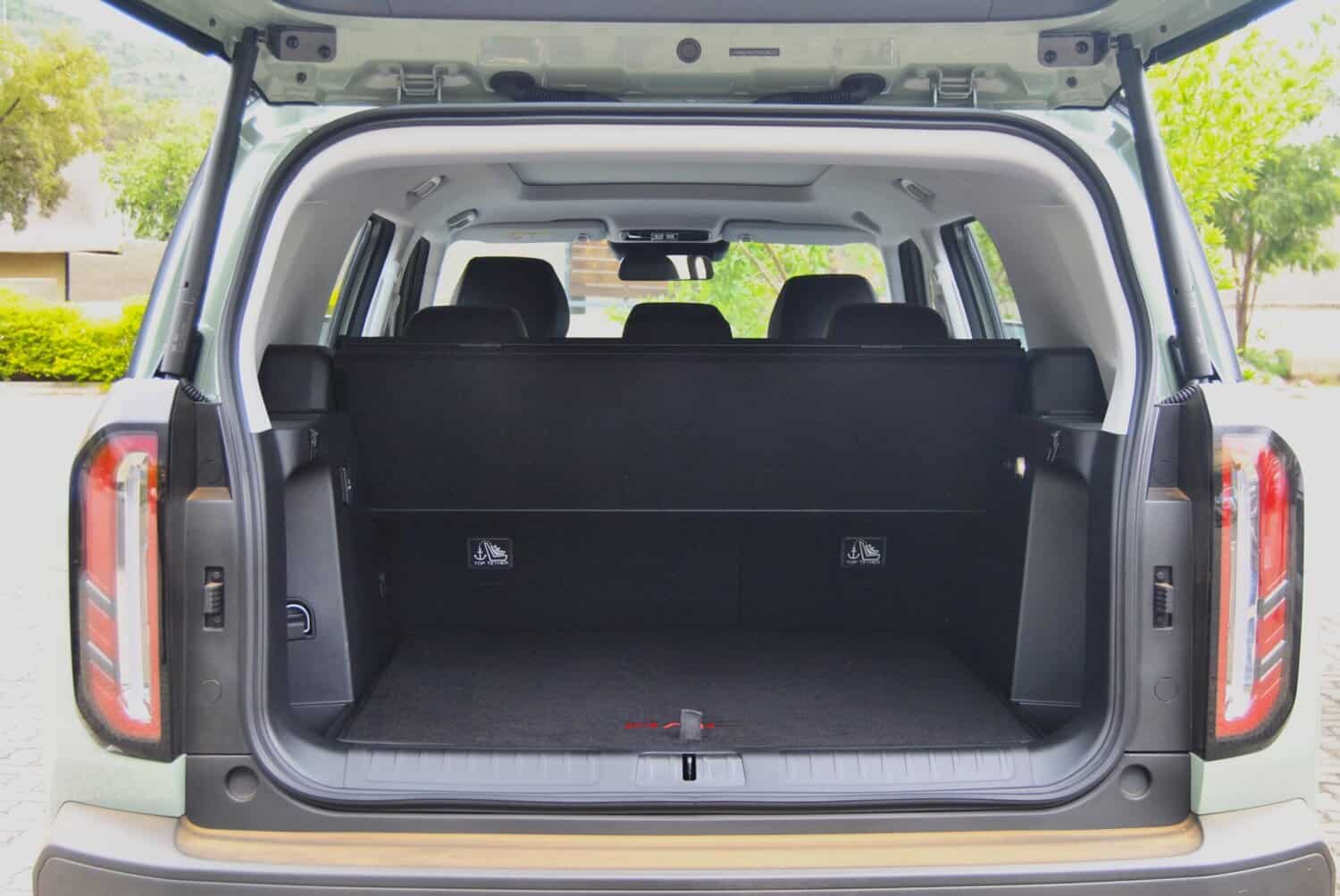
According to BAIC, load length comes to 1.9 metres – enough to accommodate a double mattress.
At the same time, the boot cover slots-in vertically above the floor as it also doubles-up as a folding and removable table.
Petrol or hybrid
On the specification front, a four-model line-up has been settled on with a choice of two trim levels, Elite and Premium, and the mentioned powertrains, the hybrid adding to an “e” suffix to the B30 badge.
Shared with the X55, the B30 makes use of the brand’s so-called Magic Core 1.5-litre turbocharged petrol unit that sends 138kW/305Nm to the front wheels through a seven-speed dual-clutch gearbox.
For the B30e, the same combustion engine has been selected, but detuned to 116kW/235Nm.
Augmenting it, though, is a front axle mounted electric motor producing 130kW/315Nm. Combined, the setup makes 246kW/550Nm.
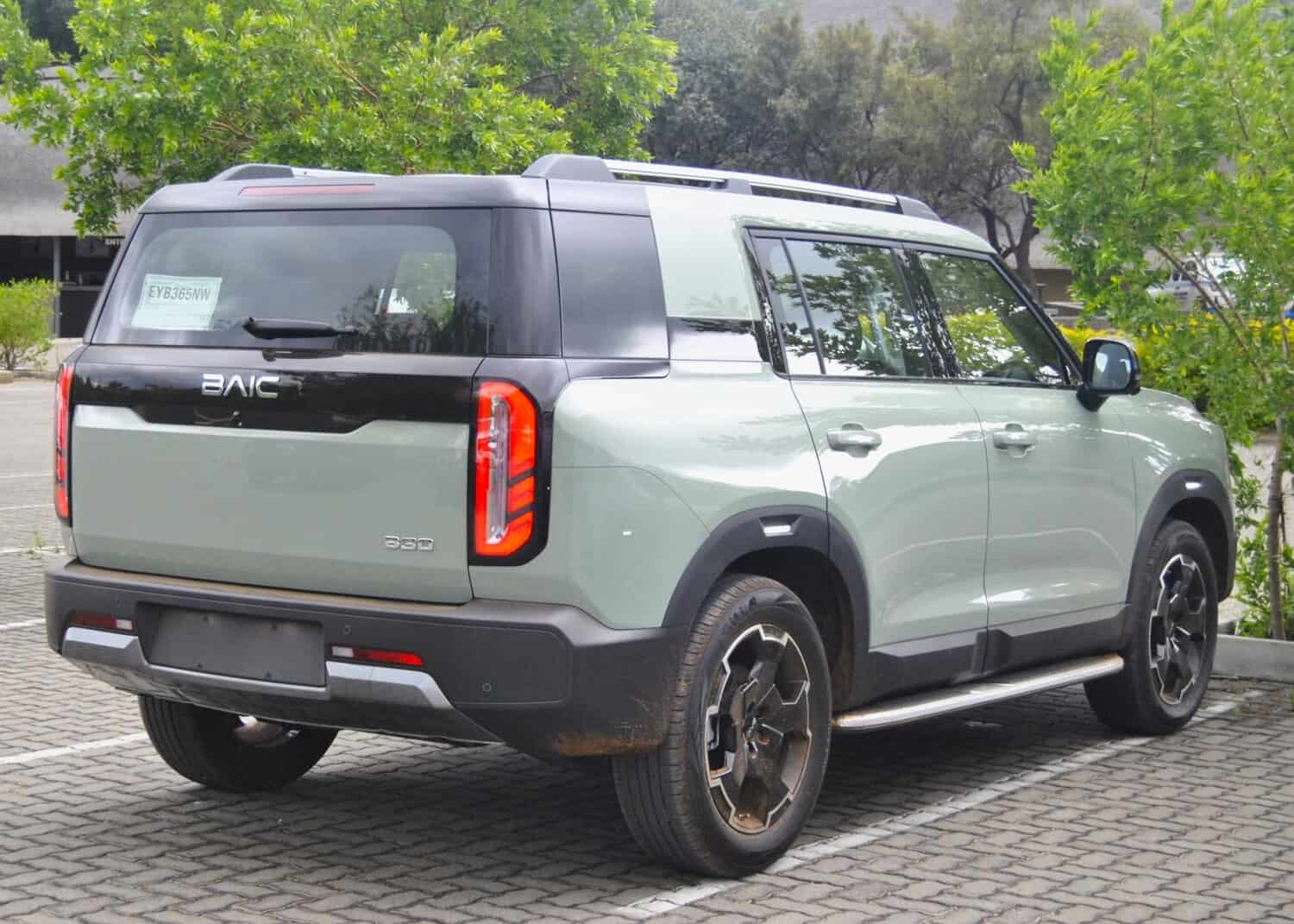
In Premium guise, the BAIC has added to a second electric motor to the rear axle, which makes 55kW/135Nm and therefore makes the B30e all-wheel drive.
The total output is 301kW/685Nm which, as on the front-wheel drive, is delivered to the ground via a two-speed Dedicated Hybrid Transmission (DHT).
In addition to the drive mode selector offering three settings; Eco, Comfort and Sport, the all-wheel drive adds an additional four off-road modes; Snow, Mud, Sand and Wading.
As for fuel consumption, the B30 will do eight-litres per 100 km, the front-wheel drive B30e 5.9 L/100 km and the all-wheel drive a claimed 6.5 L/100 km.
Spec sheet
Features-wise, all variants have the following as standard:
- auto on/off LED headlights with Auto High Beam Assist;
- rain sense wipers;
- heated and folding electric mirrors;
- LED fog lamps plus daytime running diodes;
- leather seats;
- dual-zone climate control;
- push-button start;
- electric tailgate;
- keyless entry;
- type A and C USB ports;
- electrically adjustable front seats;
- 10.25-inch instrument cluster;
- leather-wrapped multi-function steering wheel;
- eight-speaker sound system;
- 14.6-inch infotainment system
Worth noting is that while the tablet-like infotainment system supports Apple CarPlay, Android Auto is not available as a supplement comes in the form of the Carbit Link app.
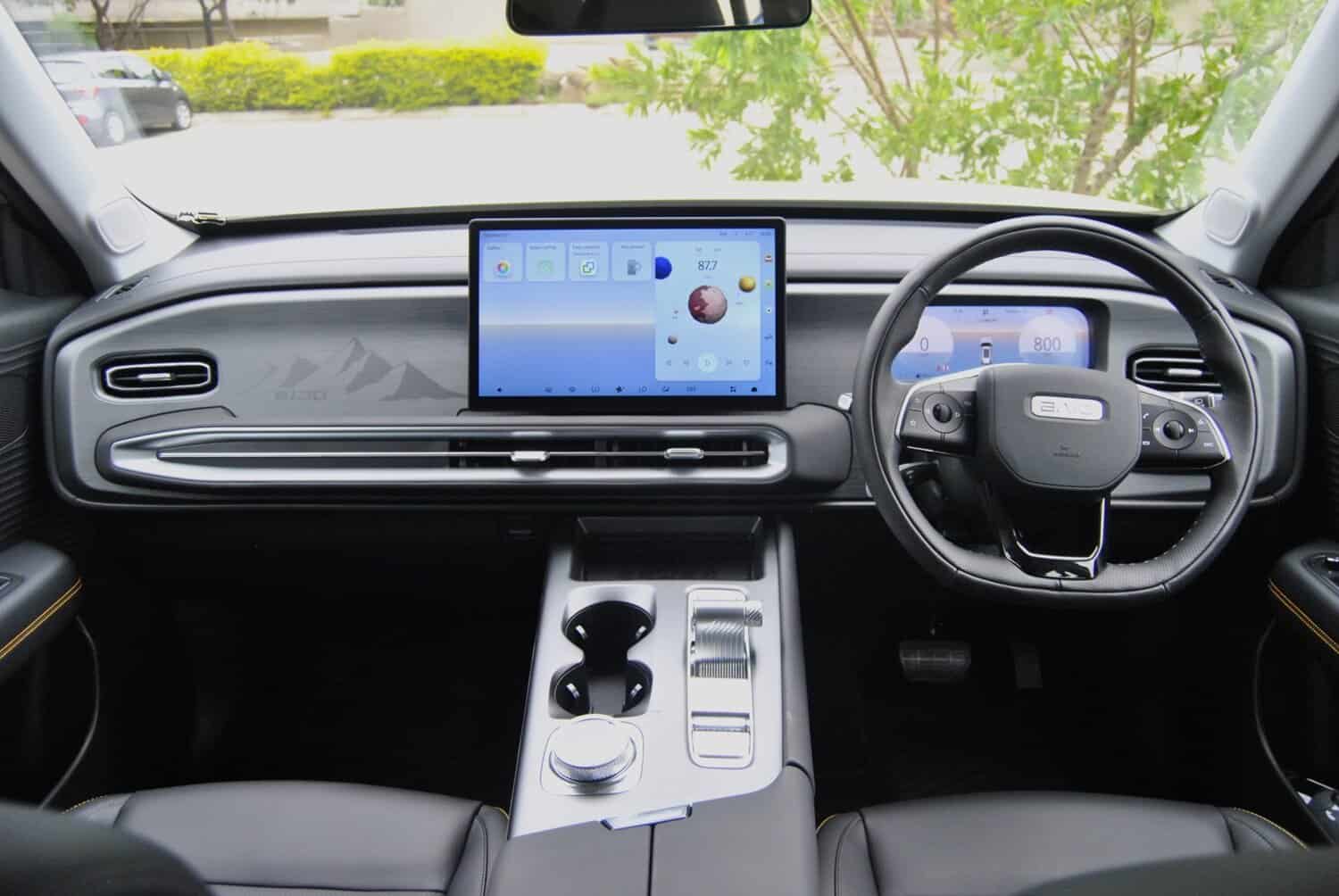
On the safety and driver assistance, all modes are equipped with:
- 360-degree camera system;
- front and rear parking sensors;
- six airbags;
- tyre pressure monitor;
- Adaptive Cruise Control;
- Electronic Stability Control;
- Driver Attention Alert;
- Rear Cross Traffic Alert;
- Reverse Automatic Braking;
- Lane Departure Warning;
- Blind Spot Monitoring;
- Traffic Jam Assist;
- Automatic Emergency Braking;
- Forward Collision Braking;
- Lane Keep Assist;
- Corner Brake Control;
- Rollover Mitigation;
- Lane Change Assist
Individually, the entry-level B30 Elite makes do with 18-inch alloy wheels whereas the rest of the range receive 19-inch alloys.
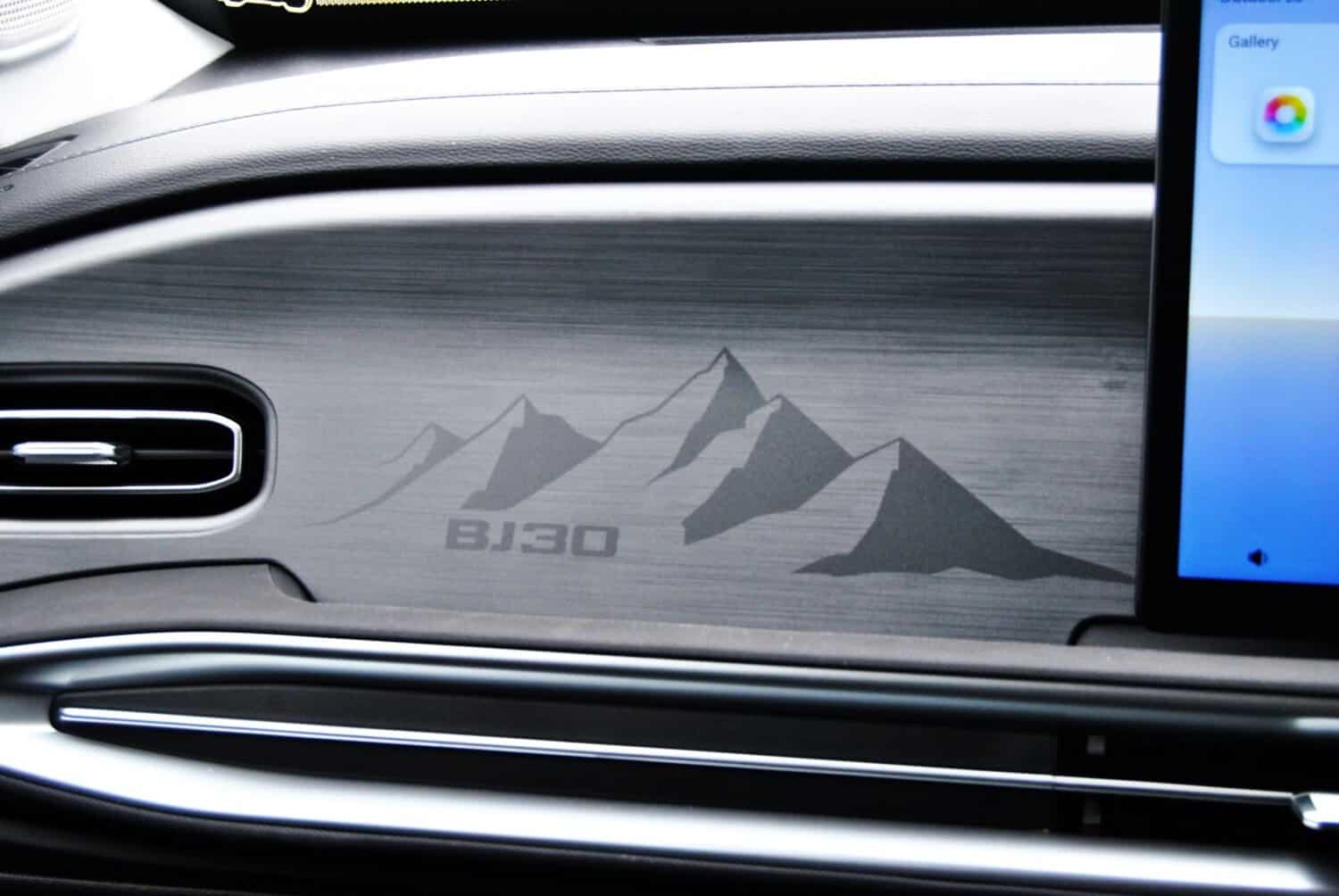
Reserved for the Premium grades are cornering LED fog lamps, ventilated front seats with memory function for the driver, and remote control opening and closing for the windows.
Unique to the all-wheel drive B30e is a panoramic sunroof, heated front seats, an electronic limited slip differential and off-road Hill Descent Control.
The drive
B30
Held over 130 km, which started on the outskirts of Johannesburg and meandered within distance of Hartbeesport, the launch route also included a stretch of gravel, though in the confines of the Lion and Safari Park outside Broederstroom.
For the drive, only the Premium models were provided, with the B30 providing the biggest surprise.
Largely devoid of the throttle calibration issues that continue to hinder most Chinese cars, the B30 lacks both the initial low-down lag and tardy shifting ‘box for more leaner and responsive combination that feel on par with more Japanese vehicles.
Despite the lack of paddle shifters, the gearbox, selected by a fetching aircraft-style lever, is quick to respond and doesn’t get confused by suddenly dropping two ratios at one when shifting down.
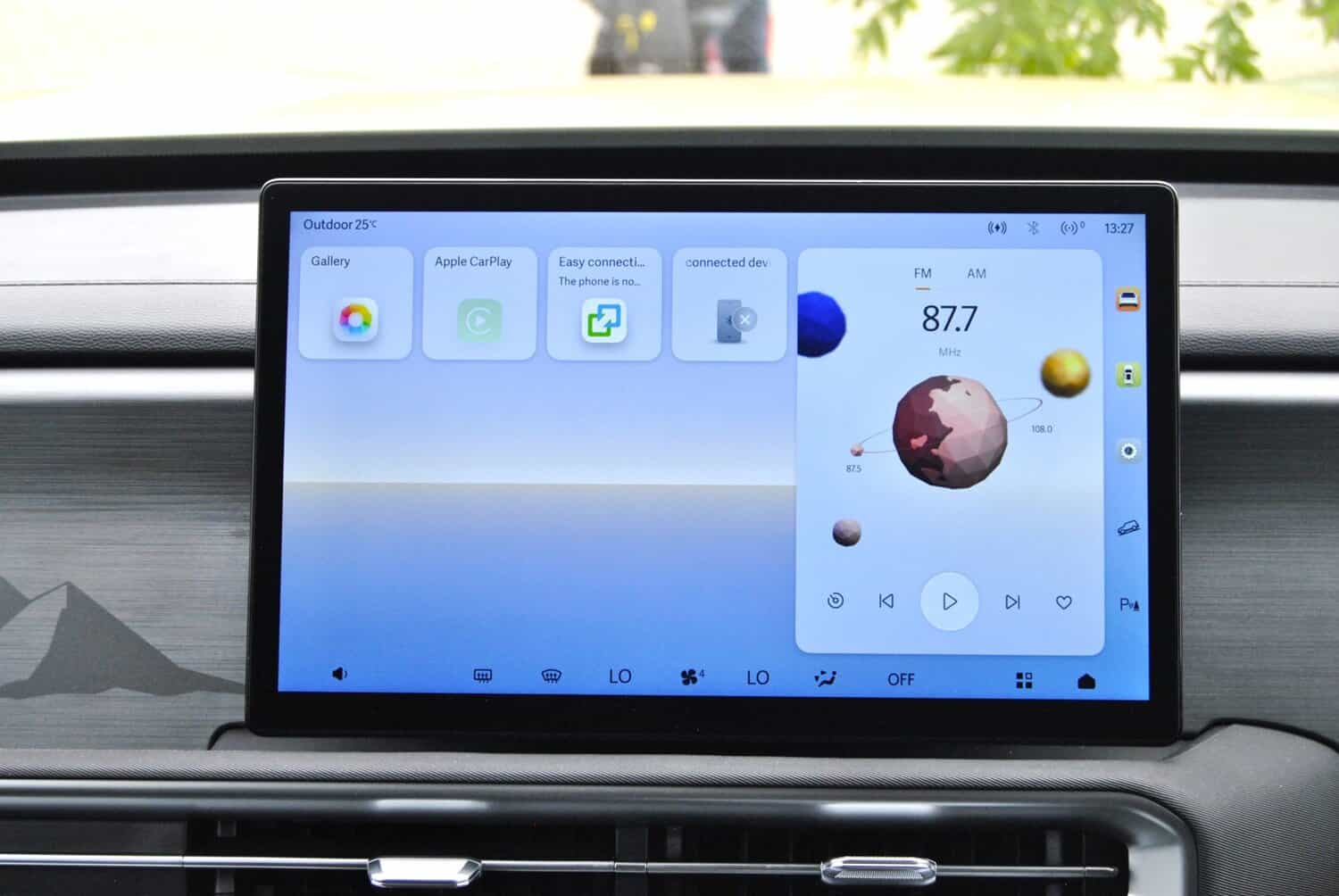
In a continuation of the Chinese upmarket push, the B30’s fit-and finish is just as impressive. While hard plastics adorn the doors, they feel solid and are backed up by an imitation alloy finish that doesn’t come across as cheap feeling.
The latter’s selection for the centre console is less appealing, but doesn’t feel clunky as portrayed. Finally, the concave dashboard sports a textured rubber-type finish and a mountain monogram on the passenger’s side, somewhat unfortunately with a BJ30 decal.
As part of the minimalist design, all of the various functions reside within the infotainment system, with the only physical switches being the scrollers on the steering wheel.
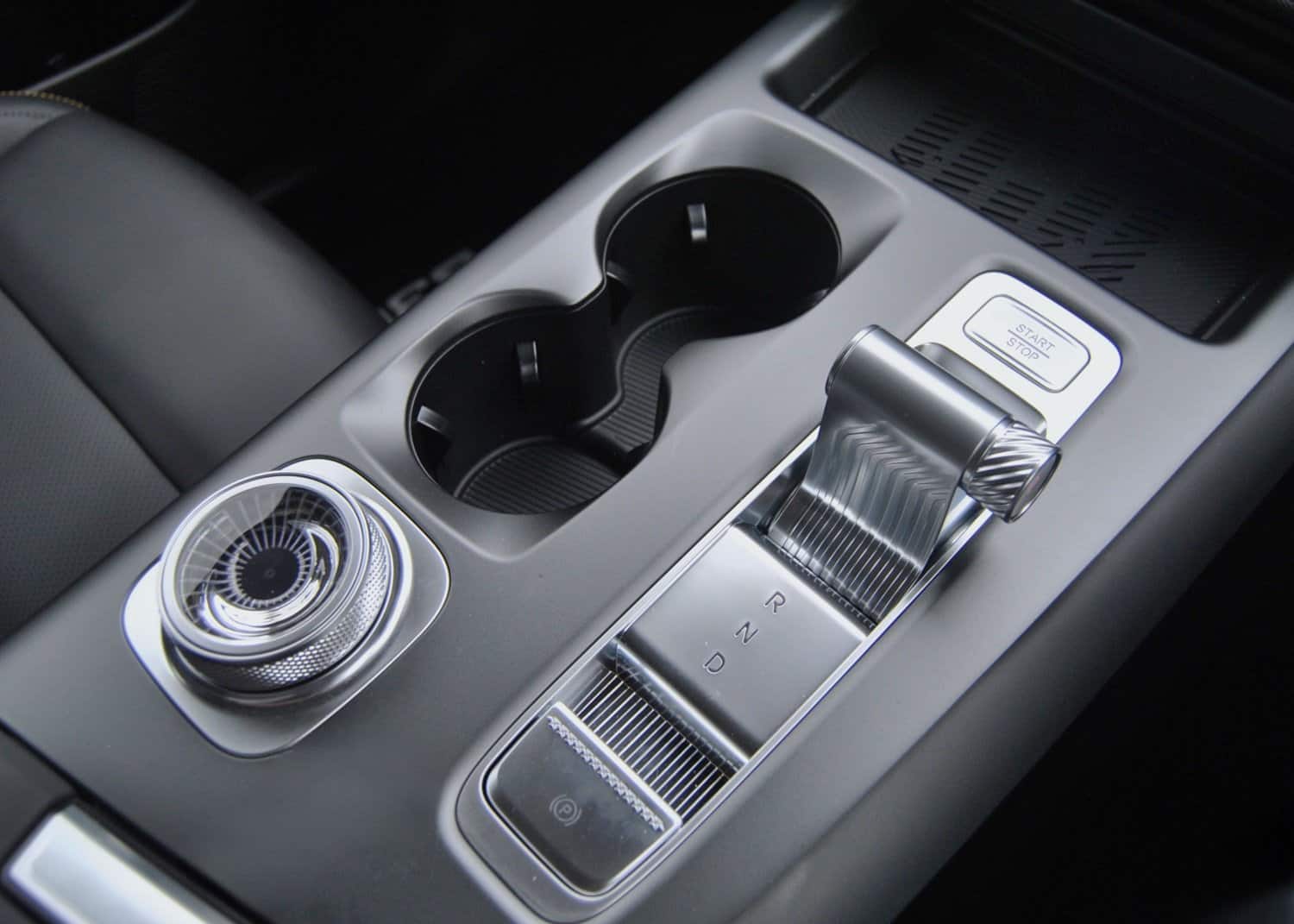
While likely to become second nature with every day usage, reverting to the display becomes frustrating in what is the biggest annoyance of the cabin.
Less so is the ride, which felt plaint and extremely comfortable on-road. The low speed off-road jaunt resulted in the ride being more jarring, though this can be attributed to the rocky and inconsistent terrain within the reserve.
As standard, the B30 has three settings for the steering, Normal, Comfort and Sport. While with a bit more feel than the former pair, the slightly heavier Sport still has too much of an electric feel, but is by far the best option.
Also lacking for little is refinement as no engine or road noise seeps into cabin, while rear passenger is massive and nearly belies the B30’s dimensions.
B30e
Switching to the all-paw gripping B30e was more of a disappoint as the promised outputs on paper simply don’t feel like it.
While the uptake is present, the added weight of the electric hardware offsets the B30e’s supposed performance gains over the B30.
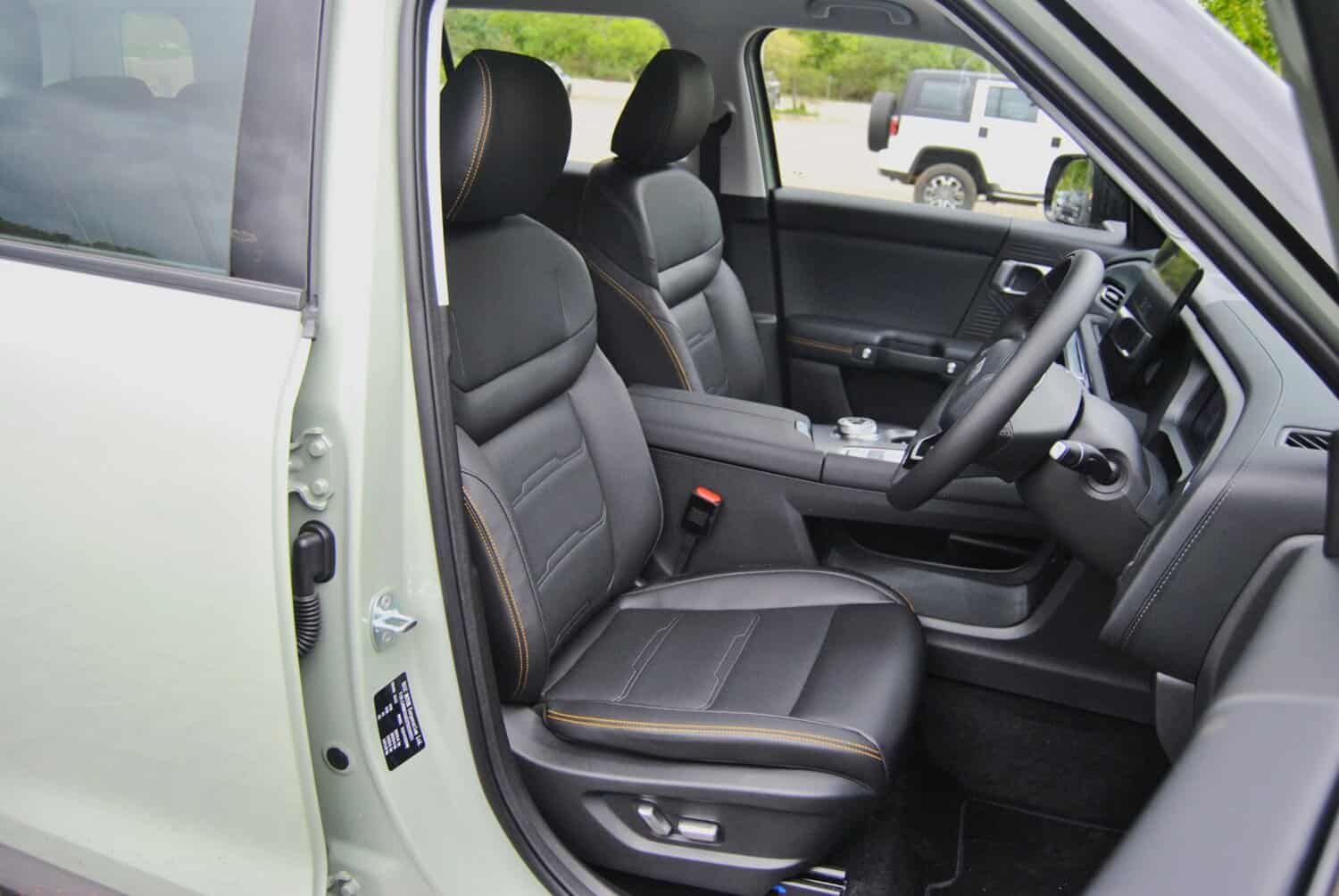
What’s more, a noticeable transmission drone is present, as is some low-down lag.
As on its sibling, comfort and space remain high, but on this occasion, made complicated as a package by a powertrain which, ordinarily, should have had the opposite effect.
Conclusion
Positioned as BAIC’s flagship above the Beijing X55, the B30 is an altogether more sorted and appealing offering that delivers when asked.
The displeasure of the B30e and ergonomically challenged interior aside, the B30/B30e’s only other stumbling block is its price.
Excluding its countryman and other legacy brand products competing at this end of the market, BAIC’s somewhat tainted reputation will be the main other stumbling block counting against the B30/B30e.
A largely well-devised it no doubt it, only time will tell whether it will be breakthrough BAIC is hoping for.
Colours and price
In total, the B30/B30e has seven colour options; white, black, grey, blue, green, Light Grey and Matte Black.
Standard across all models is a seven-year/200 000 km warranty, a seven-year/90 000 km service plan and an eight-year/200 000 km warranty on the B30e’s battery.
- B30 1.5 T-GDI Elite DCT – R519 000
- B30 1.5 T-GDI Premium DCT – R549 900
- B30e HEV Elite DHT: R639 900
- B30e HEV Premium DHT AWD – R689 900
NOW READ: Here to stay: BAIC opens its factory doors to silence the sceptics



